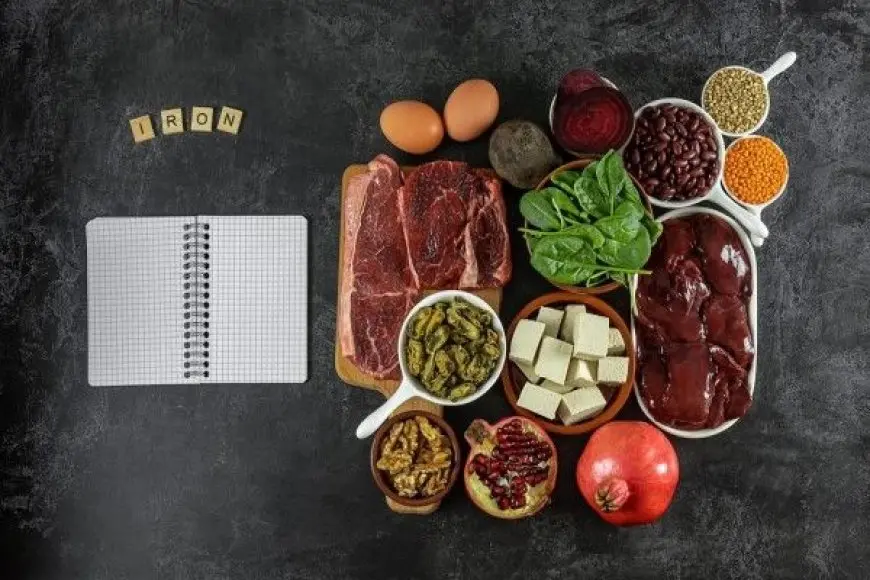The Importance of Iron and Foods That Provide It
The Importance of Iron and Foods That Provide It

Iron is a vital mineral that plays a crucial role in the body, particularly in producing hemoglobin, the protein in red blood cells that carries oxygen throughout the body. It also supports energy production, immune function, and brain health. A lack of iron can lead to iron deficiency anemia, which causes fatigue, weakness, and impaired cognitive function. Understanding the importance of iron and how to include it in your diet is essential for overall health.
Why Iron Matters
Iron helps transport oxygen from your lungs to the rest of your body, ensuring that your muscles, tissues, and organs function properly. It also plays a role in converting food into energy and supports the immune system by helping white blood cells fight infections. Additionally, iron is critical for brain development and maintaining cognitive functions, such as memory and focus.
Two Types of Dietary Iron
Iron comes in two forms: heme and non-heme. Heme iron, found in animal-based foods, is more easily absorbed by the body. Non-heme iron, found in plant-based foods, requires the presence of vitamin C or other enhancers for better absorption.
Iron-Rich Foods
Incorporating a variety of iron-rich foods into your diet ensures you meet your daily requirements. Here are some excellent sources:
- Red Meat and Poultry: Beef, lamb, and chicken are among the best sources of heme iron. Lean cuts of red meat are particularly effective for increasing iron levels.
- Seafood: Oysters, clams, and mussels are rich in iron. Fatty fish like salmon and tuna also provide smaller amounts.
- Legumes: Lentils, chickpeas, and beans (such as black beans and kidney beans) are excellent plant-based sources of non-heme iron.
- Dark Leafy Greens: Spinach, kale, and Swiss chard are nutrient-dense vegetables that contain significant amounts of non-heme iron. Pair them with vitamin C-rich foods, like tomatoes or citrus fruits, to enhance absorption.
- Fortified Cereals and Grains: Many breakfast cereals, breads, and pastas are fortified with iron, making them an easy way to boost intake. Look for options with whole grains for added fiber and nutrients.
- Nuts and Seeds: Pumpkin seeds, sunflower seeds, and cashews are good plant-based sources of iron. They’re also convenient as snacks or toppings for salads and yogurt.
- Dried Fruits: Raisins, apricots, and prunes contain small amounts of iron and can be a sweet, nutritious addition to your meals.
- Tofu and Tempeh: These soy-based foods are versatile and provide a good amount of iron, especially for those on vegetarian or vegan diets.
Enhancing Iron Absorption
To maximize your iron intake, consume foods rich in vitamin C, such as oranges, strawberries, bell peppers, and broccoli, alongside iron-rich foods. Avoid drinking tea or coffee with meals, as these can inhibit iron absorption. Calcium supplements and dairy products can also reduce iron absorption, so consider spacing them out from iron-rich meals.
Daily Iron Requirements
Iron needs vary depending on age, gender, and life stage. Women of childbearing age generally require more iron due to menstruation, while pregnant women need even higher amounts to support fetal development. Men and postmenopausal women typically require less. Consult with a healthcare professional to determine your specific needs.
Incorporating a balanced mix of iron-rich foods into your diet can help prevent deficiency and support overall health. With mindful choices, meeting your iron requirements can be both delicious and simple.







